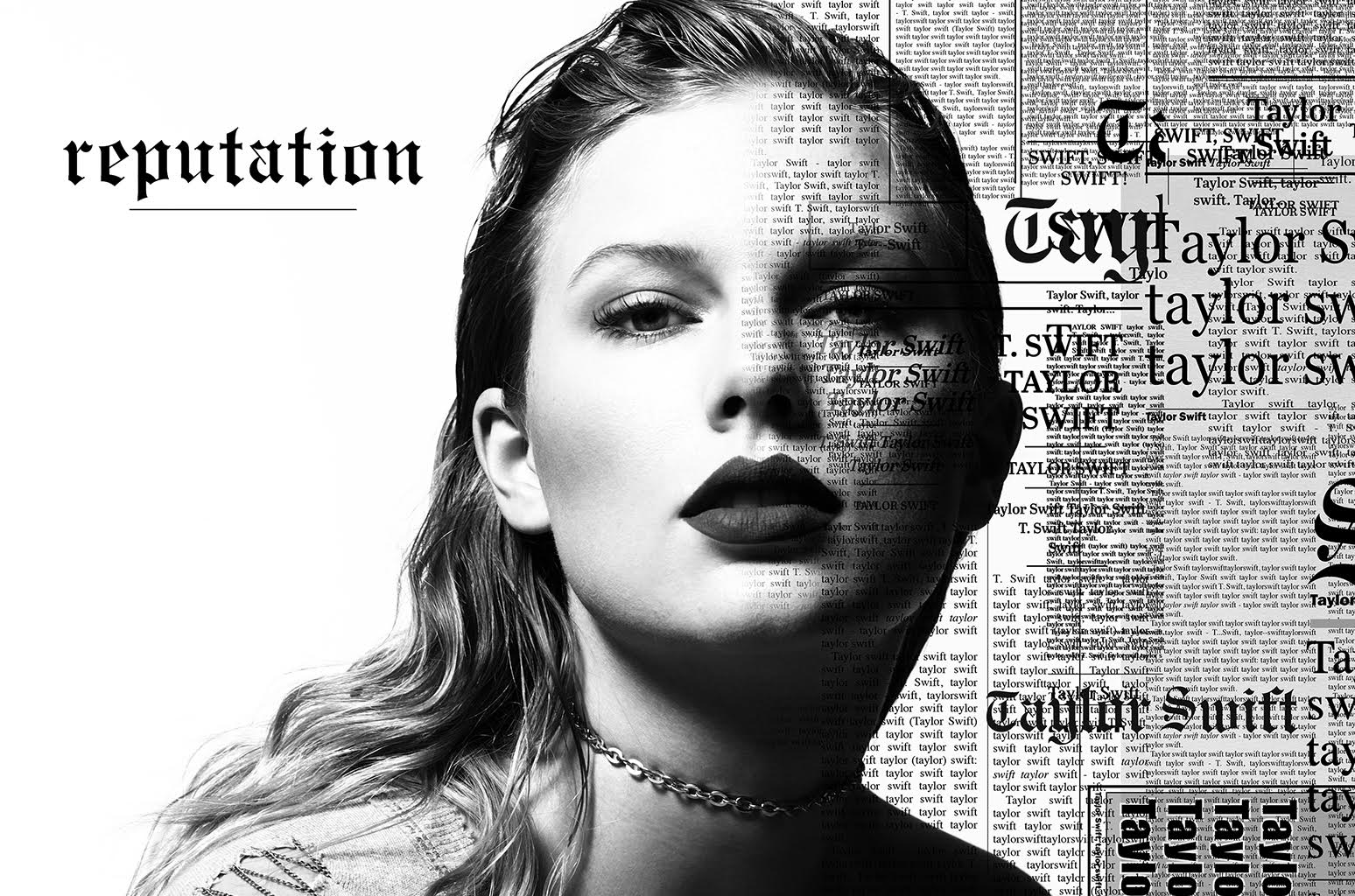Reputation, Taylor Swift’s 6th studio album, opens with the blaring bass notes of ‘…Ready For It?’. They sound like they’d be more at home on 2013’s Yeezus, but it makes sense that Swift would dip into the hip-hop playbook. A quick glance at the Billboard Hot 100 is enough to see that the genre is dominating the current musical landscape, so why wouldn’t she try her hand at it?
The result is an uneven album which doesn’t quite seem to know what it is. Though she tries to adapt to this new sound, Swift can’t break free from her strong pop songwriting roots. ‘…Ready For It?’ features rap verses entirely dissonant from its dreamy chorus. Where her personality shined in her previous albums, here she leans too heavily on her infamous reputation and her hard, gritty Bad Taylor persona. Her lyrics are meant to be sharp and cutting, but often her delivery is unconvincing. The awkward, African-American affectation she adopts on ‘End Game ft. Ed Sheeran and Future’s hook underscores this, a painfully out of touch creative choice which screams ‘inauthentic’.
— Taylor Swift (@taylorswift13) August 23, 2017
Swift sing-raps, full of bravado, emphasizing song after song that she doesn’t care about her reputation, but while the beats go hard, her lyricism does not. Her attempts at self-aggrandisement just don’t work when her most scathing lyrics are a mildly-worded list of things she doesn’t like about a thinly-veiled unnamed “you” (spoiler: it’s Kanye West on his “tilted stage”). She isn’t Beyonce in ‘Flawless’; she’s the teenager on Instagram whose bio unironically reads “this is the REAL me and if u don’t like it too bad.”
After just 6 songs, the constant thematic references and repetition begins to feel tired and worn out. Thankfully, this sound and thematic tunnel-vision don’t dominate the album; Swift only really raps on 2 songs, and tones down her ‘screw the haters’ attitude as the album progresses.
While Swift uses this exaggerated ‘snake’ persona on some songs (‘This Is Why We Can’t Have Nice Things’) she chooses to switch to a more sincere persona on others (‘Call It What You Want’). It’s a confusing creative decision because it makes it difficult to tell if Swift is making fun of herself or if she’s unknowingly fallen into the realm of self-parody. The clever self-awareness found in 2014’s ‘Blank Space’ just isn’t as present on Reputation, coming in fits and bursts instead.
Had she stuck to the concept of taking the Snake persona to the extreme throughout the album, it might’ve worked. As it currently stands, it’s jarring to hear genuine emotion sandwiched between purposeful obnoxiousness, and leaves Reputation feeling muddled as a whole. It’s difficult to get invested in the music when her lyrics flip-flop from grating pettiness to earnest.
The album isn’t terrible, however. A good chunk the album is genuinely some of her best pop output: ‘Getaway Car’, co-written and produced by Jack Antonoff, is a nostalgic, emotional pop song which calls back to 1989. ‘Dress’, an anxious mid-tempo synthpop track, sees Swift exploring a more explicitly sexual side to her public self — “I don’t want you like a best friend / only bought this dress so you could take it off”. ‘Call It What You Want’ is another subtly-produced Antonoff track which manages to sell itself on mood alone. His contributions as co-writer and producer on nearly half the album end up being some of the better songs on the record. Max Martin’s formulaic albeit successful approach to pop music — upon hearing Lorde’s ‘Green Light’, he told her it was “incorrect”, and that the melodic math was off — doesn’t quite highlight her strengths or bring out subtler emotions the way Antonoff’s lighter touch and more organic production does.
Martin and Shellback produced the remaining 9 songs on Reputation, but most of their contributions end up being the weakest. Their maximalist pop production is extravagant and technically impressive but comes off as overwhelming when paired with Swift’s faux-hardass lyrics. ‘Gorgeous’, a bright, boppy tune they produced where Swift sings purposefully vapid lyrics about a boy’s face (“cause look at that face / You’re gorgeous”), is an exception; it doesn’t overwhelm you with heavy production, and its light, bubbly production echoes the song’s lyrics perfectly. It’s also melodically one of the stronger songs on the record, catchy and delightfully airy, a reminder of her ability to write catchy toplines when she’s isn’t sacrificing it in favour of monotonous sing-rapping.
Overall, the songs on Reputation showcase a more mature Taylor Swift, if not in lyricism then in scope. It’s a messy, uneven, but ultimately interesting effort, borrowing sonically from trop-pop, trap rap, heavy synthpop, industrial rap and grime. It shows off Swift’s ambition as a pop artist, and the songs where she drops the whole meta-narrative revolving around her public persona are definitely the record’s strongest, and a promising peek into what she could put out in the future.
Mikhail Hanafi

